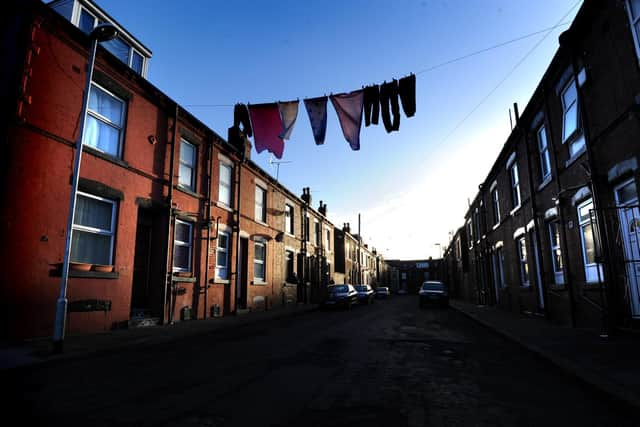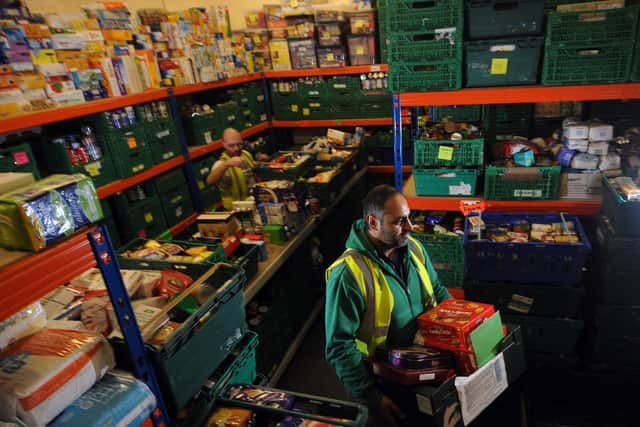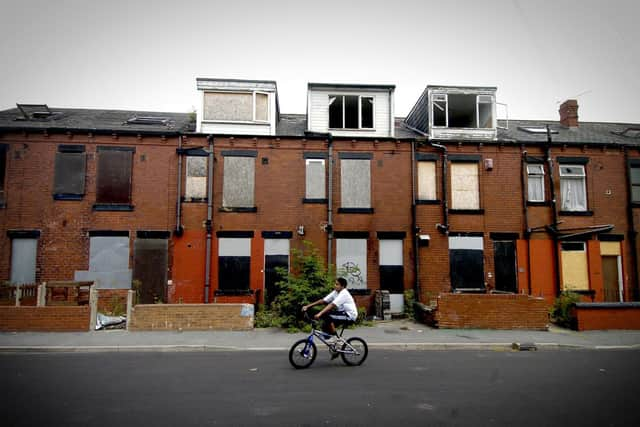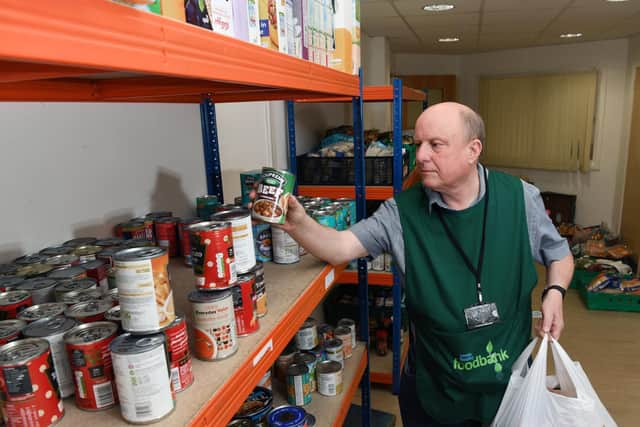The area of Yorkshire where there are more foodbanks than Co-ops
In the corner, a four-year-old boy swings his legs from a chair while an elderly woman reads a copy of Aladdin to him.
Mothers are seen balancing toddlers on hips while a shelf in the corner is adorned with nappies and baby food.
This is not a playgroup. It is a foodbank.
Advertisement
Hide AdAdvertisement
Hide Ad

"You should have been here last week", volunteer Margaret Woodward says.
"The shelves were empty it was so busy."
Some 43 per cent of children in this part of Yorkshire's biggest city are living in poverty, according to the most recent government data.
In South and East Leeds alone, the local foodbank has 10 distribution centres, with a further two opening this Spring. A quick calculation shows this means there are more foodbanks here than Co-op branches.


This number has increased from just two in 2013, with staff saying the main reason for this being the introduction of Universal Credit the same year.
Advertisement
Hide AdAdvertisement
Hide AdYet the volunteers here say most people walking through the door are not collecting emergency food parcels simply because of delayed payments or benefits sanctions; in fact, most are employed, but their low wages versus rising costs of living are leaving them, and most importantly their children, without food on the table.
The four-year-old boy's mother, Rachel, has two other children, her youngest being just two.
Rachel, 30, claims she has been forced to shoplift nappies during weeks that she is unable to afford extras after paying her rent, bills and feeding her children.


"I’m on Universal Credit," she says, adding, "since I’ve been on it it’s just been a nightmare.
Advertisement
Hide AdAdvertisement
Hide Ad"There is nothing left to buy the things I need for my kids. I’ll admit to having shoplifted nappies.
"I have been in Morrison's some weeks and put nappies in the trolley and realised I couldn’t afford them, so sneak out with them. If it weren’t for this place, there would be nowhere else to get food from. My children just think this place is the supermarket."
Another mother, Emma, who is also 30, says her six-year-old son does not even know she comes here.


"I feel really cheeky coming here when there are probably people worse off", she says.
Advertisement
Hide AdAdvertisement
Hide Ad"But my son is my life, I always make sure he is clothed and fed before me."
Emma has been unable to work since Autumn due to severe illness, but claims that even when in work as a cleaner she struggles to meet the financial demands of life.
Numbers calculated by the collection of vouchers at the foodbank reveal that 4,579 individual children from this small pocket of Yorkshire have been fed from a foodbank between April 1 2019, up until the beginning of February 2020.
By the end of March when the count is refreshed, this figure will have likely far surpassed the figure from the previous year, when 5,125 children used the service.
Advertisement
Hide AdAdvertisement
Hide AdWendy Doyle, who is an operations manager for the Trussell Trust-run foodbank, says the main problem for parents is the dilemma of "what do I pay for first?".


"We are finding more and more now it’s people in work that are using foodbanks because the cost of living has gone up, but wages haven’t.
"I have a friend who is a single mother who works for the NHS. She is on a decent wage, but after budgeting all her essential payments, she’s got just £18 left. Her daughter is five."
Elsewhere in Yorkshire, the figures are just as dismal.
There were 47,722 emergency food supplies given out by the Trussell Trust's centres across Yorkshire & the Humber between April and September last year.
Advertisement
Hide AdAdvertisement
Hide AdIn York, some 4,026 vouchers were claimed at foodbanks in 2018, which was a 22.7 per cent rise in three years.
Bradford meanwhile, one of the worst areas in the country afflicted by deprivation where in some parts more than half (50.9 per cent) of children are in poverty, has seen appeal after appeal from centres not receiving enough public donations to meet demand.
In 2019, Bradford Metropolitan Food Bank distributed close to 15,000 emergency food bags - one for every 23 people in the city - which it claims was the highest figure in its 16-year record.
Julie Woodhurst, trustee for the foodbank, said: "There has been an upward trend in people using the service which began in 2010, when austerity started.
Advertisement
Hide AdAdvertisement
Hide Ad"Since Universal Credit, we have seen a rise in what people needed. It was more certain types of items you would normally take for granted, such as blankets, nappies and baby food."
Back at Leeds South & East Foodbank, staff say the service is a crutch used by some of society's most vulnerable.
Wendy Doyle added: "Not long ago we had police in who were helping a family who had escaped domestic violence.
"One person who sticks in my mind from working here is a young girl who came in with a support worker. She literally only had what she was wearing. It transpired that the support worker had taken her off the streets after picking her up and taking her to a hostel. We had a good conversation and at the end she thanked me because I hadn’t judged her over the way she looked."
Advertisement
Hide AdAdvertisement
Hide AdFoodbank use has increased 73 per cent in the last five years, according to the Trussell Trust.
Between April 2018 and 2019, the Trust gave out 1.6m food parcels. More than half a million of these went to children.
With this upward trend, foodbanks such as Leeds South & East need the public's donations more than ever.
Bins in supermarkets are provided for shoppers to donate items, yet with an abundance of tins of beans and packets of rice, vital items are still running short.
Advertisement
Hide AdAdvertisement
Hide Ad"It's not just about tins", said staff member Nathanya Laurent.
"Things like nappies, tinned potatoes, tinned fish, biscuits and tea and coffee are always needed.
"We rely on people's kindness - without it, we wouldn't be able to help those who really need it."
Comment Guidelines
National World encourages reader discussion on our stories. User feedback, insights and back-and-forth exchanges add a rich layer of context to reporting. Please review our Community Guidelines before commenting.
